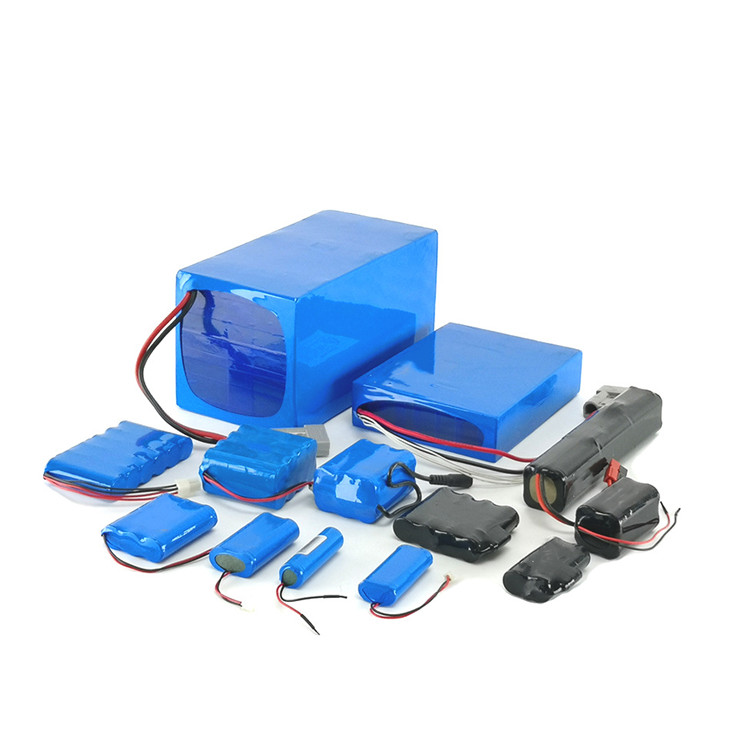Advantages and Disadvantages of NiMH and Lithium Batteries
November 3, 2023
Both nickel-metal hydride batteries and lithium batteries are pollution-free and environmentally friendly batteries. They are widely used in the market and are important areas for the development of new energy batteries. So which one is better, nickel metal hydride batteries or lithium batteries? Let’s take a look at their respective advantages and disadvantages.
What is a NiMH battery?
Nickel metal hydride battery is a kind of battery with good performance. Nickel metal hydride batteries are divided into high voltage nickel metal hydride batteries and low voltage nickel metal hydride batteries. The positive active material of the nickel-hydrogen battery is Ni(OH)2 (called NiO electrode), the negative active material is metal hydride, also called hydrogen storage alloy (the electrode is called hydrogen storage electrode), and the electrolyte is 6mol/L potassium hydroxide solution.
What is a lithium battery?
Lithium battery is a type of battery that uses lithium metal or lithium alloy as positive/negative electrode materials and uses non-aqueous electrolyte solution. Lithium batteries can be roughly divided into two categories: lithium metal batteries and lithium-ion batteries. Lithium-ion batteries do not contain metallic lithium and are rechargeable.
Which is better, nickel metal hydride batteries or lithium batteries?
The design of nickel-metal hydride battery chargers and lithium battery chargers is based on voltage in principle, and the charging solutions designed with or without memory effect are also different. The pros and cons of both products are as follows:
1. Advantages and disadvantages of nickel-metal hydride batteries
Advantages: low price, strong versatility, large current, environmentally friendly and stable.
Cons: Heavy weight, short battery life.
The capacity is higher under the same volume. Taking the common AA battery as an example, the nominal capacity of nickel-metal hydride batteries can reach 2900mAh (milliamp-hour), while the nickel-cadmium battery is only 1100mAh (milliamp-hour). Nickel-metal hydride batteries have a larger output current than carbon-zinc batteries or alkaline batteries, and are relatively more suitable for high-power-consuming products. Some special power models even have a larger output current than ordinary nickel-cadmium batteries.
It has a long cycle life and can be recycled more than 500 times under correct usage conditions. The high temperature resistance is poor, try not to let the battery temperature exceed 45 degrees. Otherwise, the lifespan will be reduced quickly and the internal resistance of the battery will increase. Overcharging has a great impact on battery life and is dangerous, so charging should be stopped when the battery is fully charged.
The operating voltage of both nickel-metal hydride and nickel-cadmium batteries is 1.2V, but the volume specific energy of nickel-metal hydride is higher than that of nickel-cadmium batteries. Due to the excellent high-rate discharge performance of nickel-cadmium batteries, nickel-metal hydride batteries cannot replace nickel-cadmium batteries in many power tools. Therefore, the ROSH standard temporarily allows nickel-cadmium batteries to be used in the field of power tools.
2. Advantages and disadvantages of lithium batteries
Advantages: No memory effect, light weight.
Disadvantages: high cost, small current, not resistant to overcharge (compared to nickel metal hydride).
Lithium batteries include primary lithium batteries (non-rechargeable) and secondary lithium batteries (rechargeable). Secondary lithium batteries are divided into Li-ion lithium-ion batteries and Li-Polymer lithium polymer batteries.
Compared with nickel-metal hydride batteries, it is lighter in weight and has a volume energy density ratio that is 48% higher. Because of this, the production and sales of lithium-ion secondary batteries are gradually surpassing those of nickel-metal hydride batteries. This kind of battery has low self-discharge and no memory effect, and can be charged and discharged more than 600 times.
Lithium batteries are not resistant to overcharging and may explode if used carelessly. Therefore, a built-in control IC is required to prevent overcharging, but the cost is also relatively high.
Lithium batteries are more suitable for mobile phones than nickel-metal hydride batteries, but in the use of digital cameras, since digital cameras have considerable current requirements and consume much more power than mobile phones, nickel-metal hydride batteries are slightly better at high current output.
Looking for customized battery for your products?Please contact: sales@customizedbattery.com








 Sales
Sales Sales
Sales Sales01
Sales01
 Sales Manager
Sales Manager